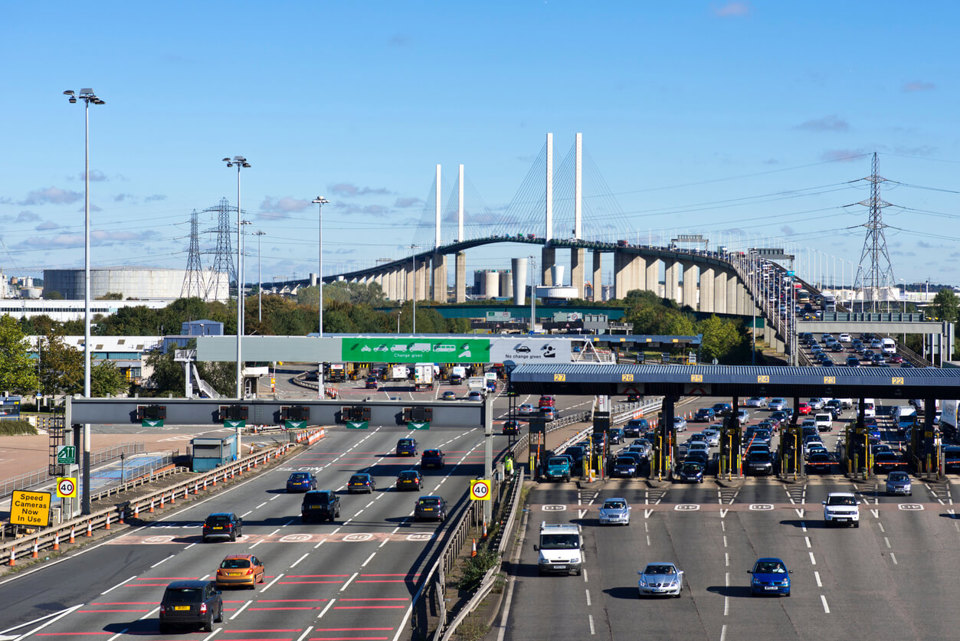Problems experienced by fleets paying the Dart Charge, with operators having to query thousands of fines, show that a different approach is required for corporate customers.
That’s according to the Association of Fleet Professionals (AFP), with chair Paul Hollick labelling the Government’s record with new software systems a “shambles”.
He told Fleet News at 10: “I’m getting a little bit bored with Government introducing new tech and it just being a bit of a shambles.
“It really irritates me… no one ever seems to think about fleets, national fleets in particular, about how we’re going to manage all this.
“We know when we’re running 500, 1,000, 2,000, 5,000 or 10,000 vehicles, we can’t just have that same runway as a retail consumer in terms of paying for things individually.
“I think that just needs to be a little bit more understanding around UK private sector businesses when they're introducing these types of things.”
Issues with the Dart Charge have included accounts being suspended, numberplates not being recognised and crossing charges not being automatically paid, despite funds being available.
One vehicle hire company even had vehicles clamped for unpaid fines, claiming the first it knew about the penalty charge notices (PCNs) was when bailiffs arrived.
Since the start of the year, a backlog of hundreds of thousands of penalty charge notices (PCNs) have been issued, including more than 2,500 to one fleet operator.
A new company became responsible for vehicle identification, payment processing and account management for the Dart Charge from July 28, 2023.
Conduent took over the payment system used for journeys across the Dartford Crossing over the River Thames, while Emovis continued to issue and handle enquiries for PCNs.
However, as reported by Fleet News at the time, the changeover left many drivers struggling to update their accounts, pay charges or speak to anyone at the call centre with phone lines jammed.
Hollick continued: “There are people picking up thousands, tens of thousands of pounds worth of fines at the moment, just because the system's still not really working that well.”
Hollick also complained that the trade organisation to speak to anybody about the problems its members have been facing.
“We’re finding it really difficult to try and engage anybody at Dart Charge,” said Hollick. “We would like to try and remedy the issues as quickly as we can.”
National Highways, which is responsible for the Dartford Crossing, told Fleet News that it is “constantly reviewing” the Dart Charge, working with all stakeholders, so it can correct any issues quickly and improve its service.
“For example, we have increased staffing at our customer contact centre, with average wait times dropping to two minutes, and continue to enhance our website using customer feedback,” said a spokesperson.
“We are not aware of any current issues relating to fleet operators accessing account information but would welcome the opportunity to discuss this and any other issues with AFP and/or the members impacted.”
With leasing companies being inundated with Dart Charge fines on behalf of fleets as the registered keeper, Zenith suggests that the situation is improving.
Nicola Carter, customer relationship director at Zenith, appearing alongside Hollick on Fleet News at 10, said it had been a “really big problem” for its fines team.
“At the start of the year, we were seeing an average lead time of 92 days (for a Dart Charge penalty),” she explained. “In June, that went down to about 28 (days) and in the most recent download that we’ve had, it was eight days.”
The figures, she says, suggest it is finally moving in the right direction and she noted that the team had reported an improvement on volumes of Dart Charge tickets seen at the start of the year.
However, she added: “It’s still there, it’s still a problem, but we’re working really closely with our customers to help mitigate some of those challenges for them.”





















Login to comment
Comments
No comments have been made yet.